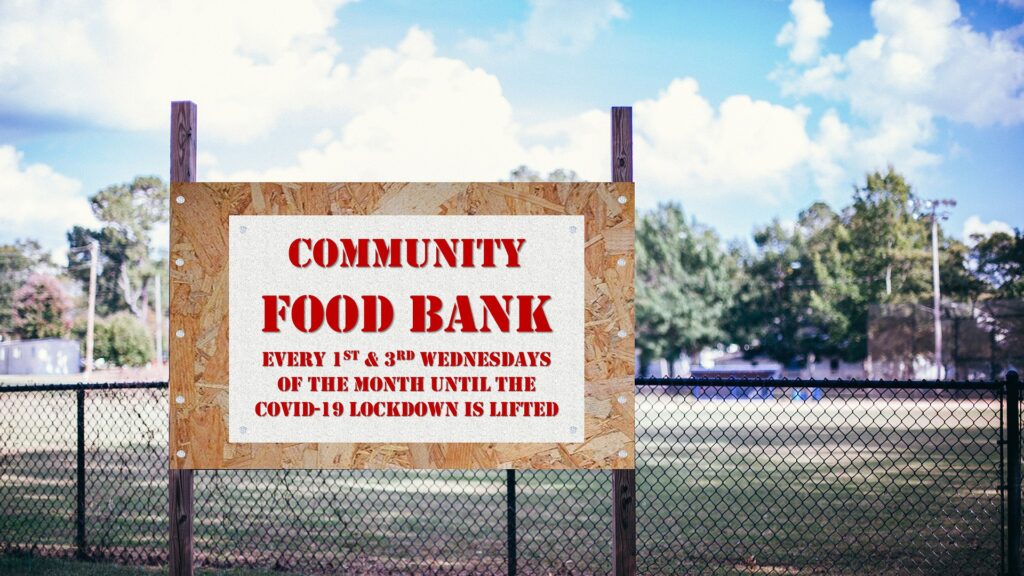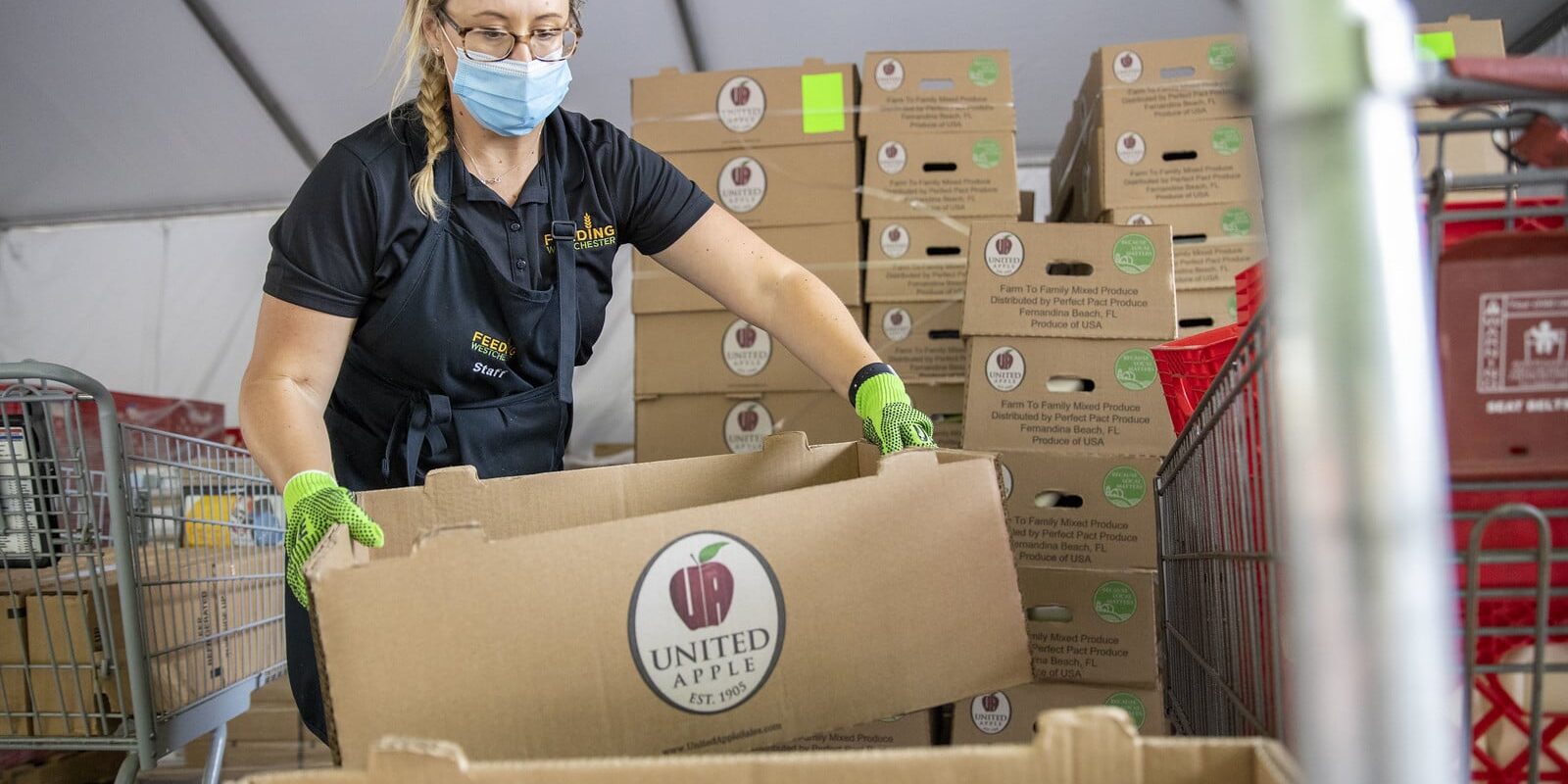Covid-19 has transformed a lot of things about the way we live, not least our relationship to food and the way we shop, cook and eat it.
Remember when we could eat anywhere? When you think back, before lockdown, people would eat everywhere – from just dropping into restaurants and eating street food at the market on a whim, to sharing popcorn in the cinema, and picnicking or making social events of a “bring & share” like we did at our permablitzes. It wasn’t even that strange to see people snacking “on the go” as they walked or travelled from place to place or even down the shopping aisle.
Look at us now! What a transformation we’ve seen to our relationship with food.
1. The move to online and shopping with purpose
With the obligatory mask-wearing, queues to get in, and that weird dance in the aisles we’re forced to do to keep socially distanced, the supermarket is no longer such a tempting place. Not only are people making fewer trips to the supermarket, but we are more purposeful in our shopping habits as we plan ahead and make better shopping lists, and turn to the internet for stocking up on our groceries.
2. The soar in popularity for natural, healthy snacks
In a time when consumers know they should be doing what they can to stay healthy and keep their immune system strong, it makes sense that produce sales have soared. Sales in the category that grocers call “natural products” exploded with the arrival of the pandemic, particularly in oranges (that are great for Vitamin C and also tend to last longer than most other fruit).
According to the market research firm IRI, by mid-March natural product sales were up 78% over the year before.
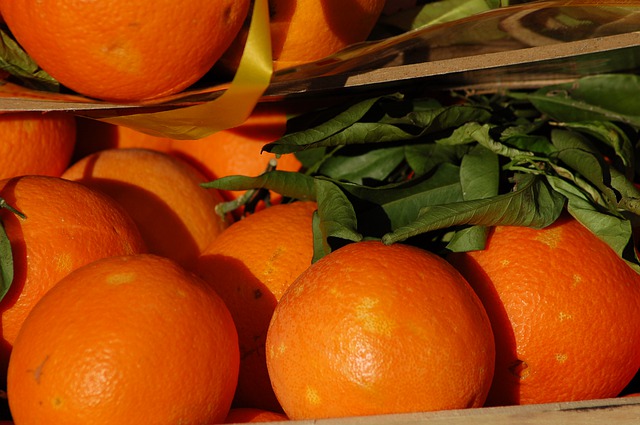
3. Food shopping has become more economical
Most of us shop less often now and use more of what we buy. Research from Wrap, a charity that aims to reduce waste, reports a 34% reduction in wasted potatoes, bread, chicken and milk at home. It also shows that people are actively trying to waste less as we try to make meals with what we have, before reverting to the shops.
4. We’re eating more plant-based proteins
Perhaps it’s having more time at home, and us generally being more experimental in the kitchen, but the pandemic has seen people going veggie and favouring more plant-based meals.
We’ve been stocking up on all kinds of dried beans and lentils and trying tofu and homemade veggie meals to produce delicious alternatives to animal protein that also benefit the health of individuals and our planet.
My Refill Market in Stony Stratford, Milton Keynes, sells pantry staples like these, and opened up an online shop during the pandemic to complement the physical store on the High Street.
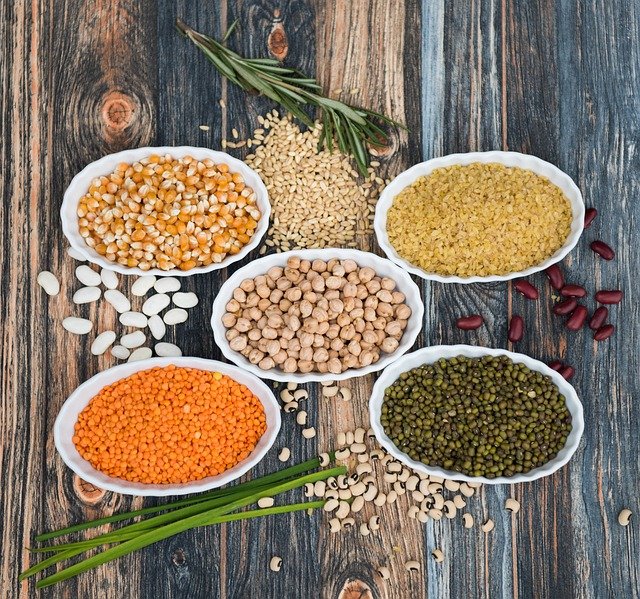
5. Kids are learning to cook
With more time spent at home together, some families are making time to get all members of the household, including the children, involved in the kitchen. Not only does this make for more interesting family-time and meals, but for those exhausted parents putting in the time and effort to give the kids some autonomy in the kitchen, there is more good news because research shows it leads to them eating healthier as an adult.
A long-term study found that adolescents who learned to cook by age 18 to 23 were eating more vegetables, less fast food and more family meals a decade later.
6. Freezer food is a hot topic
In addition to the popularity rise in natural products, frozen food has been another surprise turn up for the books during the pandemic. Even after the initial rush abated, frozen food sales are reported to remain high. Supermarkets saw “pantry fillers” at first but have since found that shoppers are buying more frozen fruit and vegetables, possibly as a less expensive and more reliable alternative to fresh.
Complementing some of the other ways that we are finding we are changing our relationship to food shopping, supermarkets have also identified how consumers are exploring freezer foods more and leaning more towards healthier, clean labels or vegetarian lines.
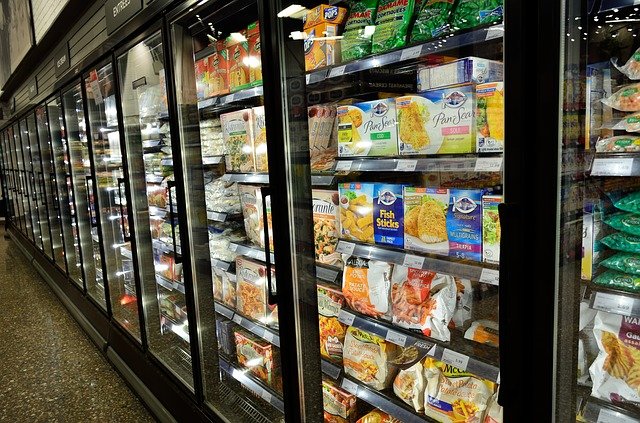
7. We’re buying food locally
In the early weeks of COVID-19, some grocery shelves went bare while farmers plowed ripe crops into fields and dumped fresh milk down drains. Problems in the food supply chain that have been magnified by the pandemic have prompted people to seek local sources of food.
This globalised system that has enabled wealthy nations like ours to enjoy diverse diets of out-of-season produce for decades – offering the illusion of food security – has been shown to be incredibly vulnerable to supply disruptions that are likely to become more frequent as the climate crisis accelerates.
We adapted by seeking our food locally, and we quickly became regular customers of local farm shops and veg box services. (For example, we discovered regenerative farm, Cranley Barn Farm on the Buckingham Road, only a couple of miles from our front door and haven’t looked back since!)
Sales of regionally milled flour, sustainably caught fish and community-supported agriculture programs also skyrocketed, which is hopefully a trend of more consciously responsible shopping that continues long after the pandemic ends now that we’ve deepened our appreciation of what it takes to bring food to our table.
8. We’re reverting to old fashioned values & associating wellness with food
Back in the first lockdown, people were panic buying, and building up their stocks of pasta, booze, and cupboard staples. But then, once we calmed down and got into the swing of things as we embraced the slow-down, people started to show their appreciation of good quality, natural and home-made food more.
Not only did we see a surge in people taking to their gardens to experiment with home food growing, but home baking took off too.
Eating is one of the most basic ways we take care of ourselves, and disruptions in food and activity routines have people rethinking how they define wellness.
People have started to investigate their relationships with food and with their bodies and are creating “new normal” plans for eating that include self-compassion as a daily practice. One example is short daily meditations, which research suggests improves many aspects of well-being, including self-worth and body appreciation.
We’ve developed new food habits that can have huge benefits in the long run. For example, hanging on to a homemade version of at least one meal we used to buy, could make all the difference for reaping long-term benefits to our health and our personal relationships.
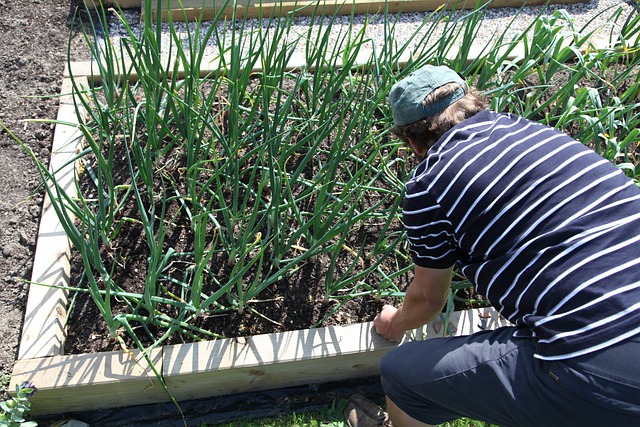
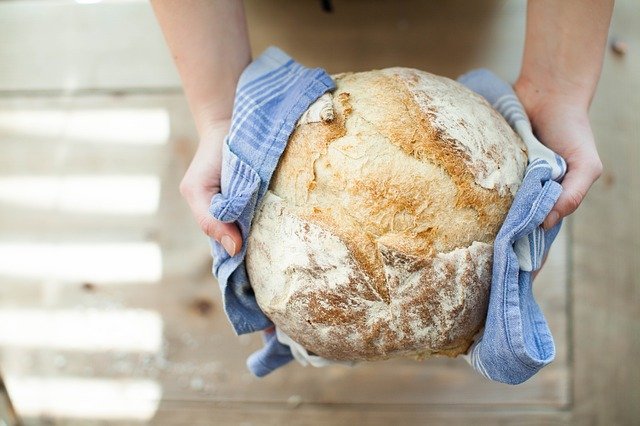
According to a survey by the environmental charity Hubbub, 57% of us value food more now than we did pre-coronavirus.
9. We’re eating family meals together
For the first time in a long time, some children have had two parents home for weeknight dinners so that they can prioritise eating together.
The good news about this dynamic of family valuing time to share meals is that researchers have found it helps children to have better self-esteem, more success in school and lower risk of depression and substance use disorders.
10. We’re stepping up to fight the hunger crisis
With increasing awareness of the hunger problem, people stepped forward to help. From neighbours donating the produce from their gardens to help other families in need, and giving away more food on apps like Olio, right through the way that Food Banks, Community Larders and Community Fridges provided emergency food parcels, it was amazing to see how the community came together to help each other.
The surge in effort from voluntary organisations, communities and industry to prevent hunger has been inspiring. But, just as Marcus Rashford’s stand for FairShare shows us, our government needs to do a lot more. So one critical thing we can continue to do is advocate for policies that expand access to quality food and health care.
